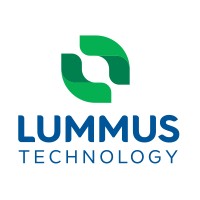-
Naphtha to Ethane / Propane from Honeywell UOP
The olefins industry is facing challenges with increasing competitiveness, in terms of cost of production, amidst a growing concern about feedstock security in many parts of the world. While ethane crackers remain the lowest cost to build and operate, many liquid crackers have already been built around the globe. These installations have sought to capture local price discounts for light naphtha and their operation is mainly due to feedstock security. Ethane is not prevalent in ...
-
Johnson Matthey licensed processes
A portfolio of advanced process technologies for global markets. Johnson Matthey (JM) develops and licenses proprietary process technologies. We also offer collaborating companies an extensive range of technology development, process design and engineering skill. For over thirty years JM has been engaged in innovative DAVY™ licensing development. Our comprehensive expertise of catalysis and reaction engineering has been tailored to the production of a wide range of chemicals ...
-
POWERSAFE - Fully integrated medium voltage control and heating solution
POWERSAFE is a fully integrated medium voltage control and heating solution that offers longer heater life, allowing you to confidently replace fossil fuel solutions with a clean electric solution. It also meets the necessary agency requirements to help make your process safe and reliable. Wattage size requirements for electric thermal equipment have been on the rise. This makes medium voltage solutions attractive because they reduce overall installation costs compared to traditional ...
-
Service plays an essential role in Servomex’s gas analysis expertise. Our analyzer systems are designed to meet the precise process requirements of every customer, and the same is true of our service support. We supply an extensive range of service products, backed by deep applications knowledge, that support the optimum performance of our analyzers and systems. Our global network of engineers delivers the expertise your product needs, wherever it’s needed. We believe that ...
-
Enabling Power-to-X Transformations
For efficient efuels and chemicals production. Our strategy is for a world that is cleaner and healthier, today and for future generations. As the chemical industry embarks on its net-zero journey, we will apply our expertise in decarbonisation and circularity to provide enabling solutions. This fast paced market requires low risk technologies that can be deployed at scale. Feedstock efficiency, low technology risk, and optimised project execution are key for successful power-to-X ...
-
Thermon solutions for energy Transition
Thermon offers a full solution of safe, efficient, reliable products that advance clean energy and energy transition. We are dedicated to providing solutions for renewable energy production facilities with sources that are not depleted with usage. By supporting the creation of alternative energy sources, Thermon is helping to create a more sustainable future.
-
Making it real at Hafslund Oslo Celsio
We are on track to build the world’s first carbon capture facility at a waste-to-energy plant as part of a full transportation and storage value chain. Technip Energies is supporting Hafslund Oslo Celsio to foster the opportunity for a more sustainable energy future. The carbon capture plant at the Hafslund Oslo Celsio waste-to-energy facility will reduce the city of Oslo’s fossil CO2 emissions by 17 percent, or the equivalent emissions of about 200,000 cars. As its partner ...
-
The Role of E-fuels in Decarbonising Transport
Rapid deployment of low-emission fuels during this decade will be crucial to accelerate the decarbonisation of the transport sector. Significant electrification opportunities are available for the road transport sector, while the aviation and marine sectors continue to be more reliant on fuel-based solutions for their decarbonisation. Fuels obtained from electrolytic hydrogen, or e-fuels, could be a viable pathway and scale up quickly by 2030, underpinned by a massive expansion ...
-
Finding low-emission solutions for a sustainable tomorrow with true insight
Reducing emissions is essential for a sustainable tomorrow and all solutions and technologies must be considered, including energy efficiency, electrification, increased renewable energy, hydrogen and CCUS. Across industries and corporations, there is a clear acceleration of decarbonisation and net-zero ambitions. At Technip Energies, we believe in a low-carbon future. Leveraging our expertise and credible track record, we are helping our clients worldwide to cost-effectively ...
-
Hydrogen has emerged as a central narrative of the European Green Deal. With the legally-binding objective of climate neutrality by 2050, set by the European Climate Law and the increased climate target for 2030, the need to speed up the efforts towards climate change mitigation is evident. The EU is therefore relying on hydrogen as a way to decarbonise energy-intensive industries, energy and transport sectors. The EU hydrogen strategy, published in July 2020, highlights that ...
-
Fuelling The Future For Cleaner Skies
Creating new revenue streams for ethanol in the aviation sector. We’re expanding our Sustainable Aviation Fuel portfolio to include new Ethanol to Jet fuel technology. Ethanol to Jet fuel represents a new revenue stream for ethanol producers looking for diversification to satisfy the needs of the large and growing aviation market. Producers of SAF can recognize significant value from their fuels because of fuel production credits and airline demand for sustainable solutions ...
-
TRI-CON Series H2 Applications
The number of unique technical attributes of the product, as the cone-in-cone seating design with the multiple laminations and the metal seat makes the series TRI-CON to an all rounder for many different industrial applications. Zwick valves are used for industrial and exhaust gases, liquids, hot water or steam at lowest as well at high temperature zones up to 815°C. The TRI-CON is utilized extensively in the chemical, petro-chemical, oil & gas, offshore and district heating ...
-
Heat Management System for the LNG Industry
nVent Thermal Management protects critical processes within the LNG industry. Our Heat Management System (HMS) solutions support all aspects of the LNG supply chain - liquefaction and gasification plants, terminals, jetties and storage tanks. nVent RAYCHEM heat trace systems offer superior reliability with the highest lifetime value at lower installed cost and lower cost of ownership.
-
Decarbonising process heat with industrial heat pumps and steam compressors webinar
Industrial energy consumption accounts for about 25% of energy demand and CO2 emissions worldwide, with process heat being the most common application. Hydrocarbon and basic chemical processing plants are particularly process heat-intensive. Heat demand for basic operations distillation and heating of fluids in US industry is about as energy intense as all other industrial heat applications combined. At the same time, there is a vast, unused potential for waste heat in many plant ...
-
Proven decarbonisation pathway for sustainable biofuels and chemicals production from waste webinar
The flexibility to make use of varying waste streams as feedstocks to replace primary fossil resources is a common goal in operations today. You may be looking at sources such as woody and agricultural biomass, MSW, RDF, SRF, sewage sludge, or non-recyclable plastic to produce bio or circular chemicals or sustainable fuels: Bio Syngas, green hydrogen, SAF, sustainable maritime fuels, or BioMethanol. The key question is how to decarbonize these assets to meet sustainability and ...
-
Innovative H₂ Solutions to shape the hydrogen economy
View this webinar for an insightful journey into the future of sustainable energy with Honeywell H₂ Solutions. In this exclusive webinar, we'll delve into cutting-edge innovations in hydrogen technology, focusing on Blue Hydrogen solutions and Liquid Organic Hydrogen Carriers (LOHC). Attending will offer these valuable benefits: - Discover how Honeywell is leading the way in transforming the energy industry through Blue Hydrogen, a game-changing process that reduces carbon ...
-
Overcoming roadblocks to decarbonisation webinar
Reducing global CO2 emissions and limiting the increase in global average temperature to 1.5°C is probably the greatest challenge humanity has ever faced. The continuous increase in strength and frequency of natural disasters accompanied with record-high temperatures have drastically accelerated the need to take action to reduce our carbon impact. There is a global consensus between governments, companies, and the public that there is a need to decarbonise our societies and, ...
-
A hidden threat to refining and petrochemical operations
Did you know that a seemingly insignificant amount of biofilm can negatively affect heat exchanger reliability and efficiency and, as a result, significantly limit production? Attend this webinar from Solenis to gain valuable insights into risks and solution methodologies for biofilm issues. • Learn how biofilm can affect your profitability and production efficiency • Explore novel technologies from Solenis that mitigate the risks posed by biofilm • Hear about a leading ...
-
Mission critical electric heat tracing solutions to support the energy transition webinar
Around the globe, clean fuels are helping reduce carbon emissions. And world leaders have pledged to invest in technologies such as carbon capture and hydrogen to help accelerate the clean energy transition. Biofuels, hydrogen, liquefied natural gas and carbon capture technologies are driving the transition to clean fuels and CO2 reduction. This webinar gives you the opportunity to learn how nVent RAYCHEM solutions for the energy transition markets can enable and optimize your ...
-
New digital tools to improve operational profitability in refineries Webinar
View this webinar to learn how you can leverage new digital tools as part of the Honeywell UOP upgraded PremierPLUS Performance Services offering to avoid unplanned downtime, optimize process performance, manage personnel changes, and reduce energy and emissions. The PremierPLUS Performance Services offering addresses these challenges and can improve operational profitability by an average of $1M to $5M per year. Attending this webinar will give you an overview of Honeywell ...
-
Maximizing renewable diesel and sustainable aviation fuel yields
Investments in renewable diesel (RD) and sustainable aviation fuel (SAF) production are gaining considerable momentum and are expected to play a vital role in reducing carbon emissions for heavy-duty transportation. Currently, the majority of these projects focus on the production of HEFA (Hydroprocessed Esters and Fatty Acids). Chevron Lummus Global combines the renewable processing catalyst experience and technology of ART's ENDEAVOR™ catalyst system, CLG's hydroprocessing ...
-
Enabling energy transitions with the Callidus ultra blue Petrochemical burners
Join this webinar to learn how your renewable energy and net zero operations can dramatically lower nitric oxide (NOx) emissions with the Honeywell Callidus Ultra-Blue Burner system. Fuels are changing in order to meet corporate commitments to carbon reduction and net zero goals. As your operations use more hydrogen and renewable fuels, production of nitric oxide is increasingly scrutinized in both external regulations and internal emissions targets. Attending this webinar ...
-
The Sustainable Solution for HydroProcessing Catalysts
Unveil the path to sustainable catalyst processes with Excel® Rejuvenation Technology! Join us as we delve into the art of catalyst rejuvenation, uncovering the means to propel your processes towards enhanced sustainability and waste reduction. Learn how to steer your operations away from wasteful practices and embrace sustainability using Evonik's Excel® Hydroprocessing Catalysts solutions. Our certified Life Cycle Assessment (LCA) lays bare the potential emissions you can ...
-
Webinar discussing developments and solutions for renewable fuels testing
Regions and nations around the world are swiftly translating their climate targets into investments in renewable energy and fuel production. This necessitates a multifaceted approach and innovative solutions. Join us for this webinar as we report on the latest developments in the renewable fuels industry, with a particular focus on the transportation sector. We will discuss a range of renewable fuels, including SAF, ethanol, biodiesel, hydrogen, and their derivatives, while exploring ...
-
Low cost production of renewable diesel and sustainable aviation fuel
Feed flexibility is critical for operators to stay competitive and deliver high-quality products. But diversifying your feed can bring its own set of challenges. It gets even trickier when working with renewable feedstocks from biological sources. These materials are highly olefinic and might be packed with heteroatom contaminants. To turn them into something valuable, you need substantially more hydrogen than you would for conventional petroleum hydrotreating. We're talking 1,700 ...
-
Navigating Complexities of Renewables Processing: Feedstocks, Legislations, Challenges & Solutions
Refineries are shifting away from producing traditional fuels to remain relevant, compliant and profitable. Join us to learn more about recent developments in renewable feedstocks processing. In this webinar from Ketjen, you will gain an understanding of the regulations and drivers that shape the renewables market. You will also have a chance to learn about operational challenges you may face while processing feedstocks with various amounts and grades of HVO or waste plastic ...
-
Decarbonisation with Honeywell Sustainability Portfolio and the Inflation Reduction Act
The Inflation Reduction Act (IRA), passed by the US government on August 16, 2022, provides nearly $370B in clean energy and climate funding over the next decade There has never been a better time to invest in a more sustainable future. Our upcoming webinar will provide valuable insights into key IRA provisions and enabling technologies to accelerate industrial decarbonisation and achieve your long-term financial and sustainability goals. This webinar will offer an incredible ...
-
Applying Crude to Chemicals: Technologies for effective petrochemicals production
With the consumption of petrochemicals increasing globally and the demand for transportation fuels under pressure from energy transition initiatives, refiners are being driven to optimize their facilities and explore revenue streams outside of the traditional transportation fuel value chains. There are several alternatives and methodologies to capture additional value from crude oil through conversion into petrochemicals to consider. This webcast covers: - How to convert a ...
-
Decarbonization with hydrogen solutions
Demand for hydrogen is expected to increase up to ten-fold by 2050 when multiple industry reports predict 8-24% of the world’s final energy demand will be supplied by hydrogen. Hydrogen has a unique ability to address ‘hard-to-decarbonize’ sectors including refining, chemicals, steel, heating, long-haul transport, and long-term power storage — all of which currently produce significant CO2 emissions. To achieve this, hydrogen must be produced with significantly lower carbon ...
-
Enabling circularity via plastics chemical recycling
Chemical recycling of plastics is an emerging route to supplement mechanical recycling since polymers can be converted into monomer form. As opposed to mechanical recycling, wherein the polymer properties degrade with each cycle, the monomers can be re-polymerized without any polymer property degradation. Petrochemical and refining operations of the future will include more plastics oil, obtained from chemical recycling, in the feedstock mix to establish circularity in the ...
-
How turbomachinery can support decarbonization
With the hydrocarbon processing industry’s efforts to decarbonize, hydrogen and Carbon Capture Utilization and Storage (CCUS) have further moved into focus as viable alternatives for transforming existing energy markets. Both hydrogen and CO2 provide ample opportunities to be used in hydrocarbon processes either in molecular form or as feedstock. At the same time, the unique physical properties of both hydrogen and CO2 can make them a challenge for process equipment such as ...


































